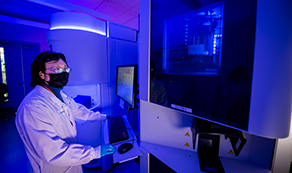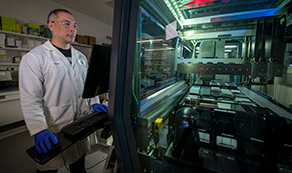DOE Joint Genome Institute (JGI)
Working with the JGI

By decoding field samples collected from around the world, JGI users can learn from nature and apply the information to their research. (Image by Thor Swift/Berkeley Lab)
User Programs

In working with the JGI, users gain access to not just scientific and technical capabilities and equipment, but the staff’s expertise as well. (Image by Thor Swift/Berkeley Lab)
Science Programs

Mining JGI data portals for microbial and metagenome datasets allows researchers to learn more about the planet’s known microbial diversity – and find viruses that impact microbial health and the planet’s nutrient cycles. (Art by Zosia Rostomian/Berkeley Lab)



